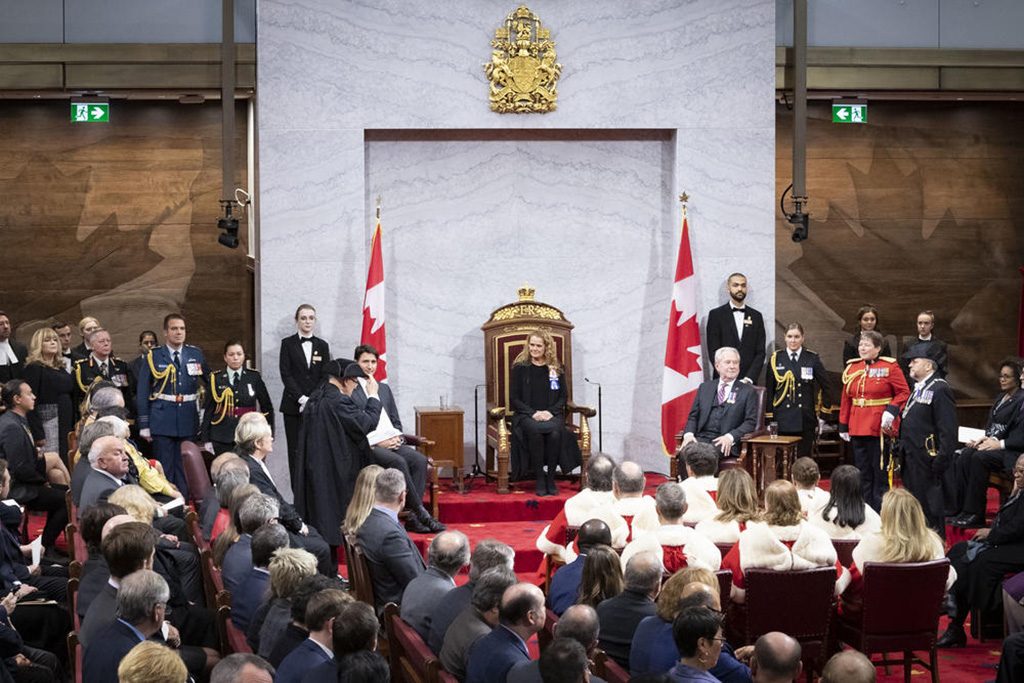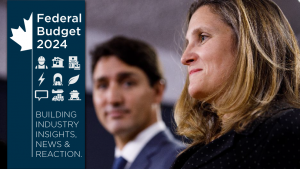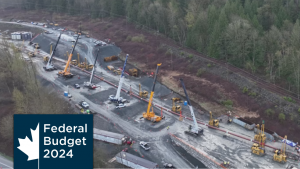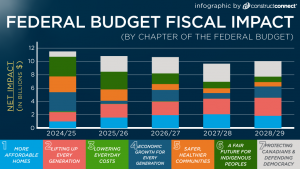Western Canadian construction leaders are waiting for more details from Ottawa about infrastructure and the construction industry than the recent throne speech provided.
“The overall sense was it was more of the same. We don’t see any recognition of the big challenges lying in front of Canada and the construction industry,” Progressive Contractors Association of Canada (PCA) vice president of public affairs Darrel Reid said.
“There’s a huge infrastructure deficit, and our members are big infrastructure builders,” he added. “The shovels aren’t in the ground, and money is staying in Ottawa and the provinces.”
Neither the current regulatory regime or investment climate were addressed in a significant way, Reid said, and recognition of Western Canadian unhappiness with current resource industry regulations “would have been helpful.”
“I realize it’s a speech from the throne and not a budget, but we would like recognition of the need to put construction folks back to work in a major way,” Reid said.
Vancouver Regional Construction Association president Fiona Famulak also noted more could have been said and done about the construction industry and infrastructure.
“The opening statement (of the throne speech) says infrastructure is on the government’s radar, but we’d like to see more details,” Famulak said.
The construction industry is already working to attract youth and under-represented groups as well as investing in apprenticeships and education.”
But that’s not enough, and we’d like to see the federal government work with us to develop a pipeline of workers. They could also promote construction as an employer of choice,” she said.
Famulak also cautioned that conditions have changed from the last election where the Liberal government enjoyed a solid majority in Parliament.
“We have to bear in mind that it’s a minority government and perhaps that’s the reason it was a high-level speech. They can’t speak to specifics until they’ve secured support for those specifics,” she said.
British Columbia Construction Association (BCCA) president Chris Atchison pointed to infrastructure concerns as an issue that must be addressed at the federal level.
“Right now there are some big challenges for our industry that are unique to BC, but other issues we’re facing are universal across Canada – and these were not addressed in the throne speech,” Atchison said.
“At BCCA our approach with the federal government is to work in partnership with associations from other provinces under the leadership of our national representatives at the Canadian Construction Association. Together we’re a powerful collective, and I expect going forward we’ll be seeking clarity on workforce development, infrastructure investment, community benefits, public procurement, regulatory review procedures and indigenous rights as they impact major projects,” he added.
BC Building Trades executive director Andrew Mercier had a more favorable view of the throne speech, though he said his organization will wait and see for solid implementation of policy.
“There’s a lot of good promises in the throne speech and the building trades are cautiously optimistic. There are good promises on pharmacare, addressing the opioid crisis, and the Liberals are making promises on the climate and getting resources to market, but the devil is in the details,” Mercier said.
“The throne speech was not short on strong vision statements, but it was short on implementation,” he added.
Mercier said the Building Trades were disappointed with a lack of a national strategy to deal with asbestos deaths and would have liked to see community benefits agreements (CBA) at a federal level.
“The public supports CBAs and they are a benefit to the government and to working people, so clearly we’d like to see them extended to federal projects,” he said.
The throne speech stressed the importance of tackling climate change, a priority agreed upon by construction leaders.
“Everyone in the country recognizes climate change a challenge. It was a prime issue in the last election, and Canada’s construction companies and workers know we need to be responsible in addressing climate change issues,” Reid said.
“Our members will be playing a big role in combatting climate change and we’re ready to do our part, but we’re worried about (government) actions that may or may not be helpful in face of a serious investment challenge in the west,” he added.
Famulak was also pleased to see climate change as a key component of the speech.
“That’s good for Canadians generally and for the construction industry and it creates good paying jobs that we’re seeing already,” Famulak said.
The Independent Contractors and Businesses Association (ICBA) echoed concern over the path towards infrastructure improvement.
“The Liberal government has very optimistic plans to build infrastructure, but to get all of those transportation and other projects going, they will need to exercise some smart fiscal discipline – including rejecting Building Trades pressure to hand their unions a monopoly on construction. They’ll also need to supercharge growth in our economy, but with our taxes and red tape so much higher than our competitors around the world, that will be difficult to do,” ICBA vice president of communications and marketing Jordan Bateman said.











Recent Comments
comments for this post are closed